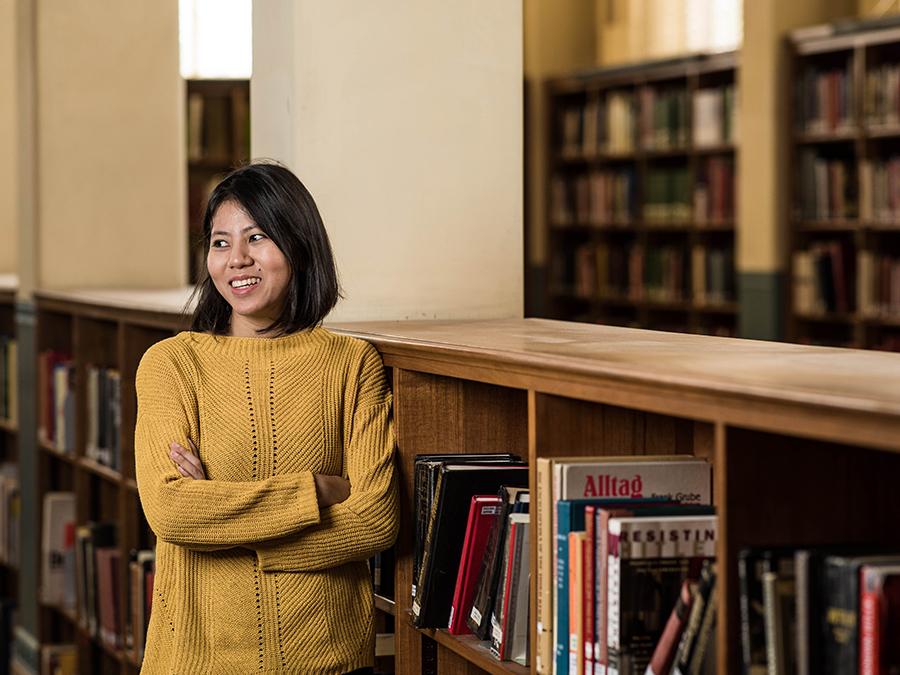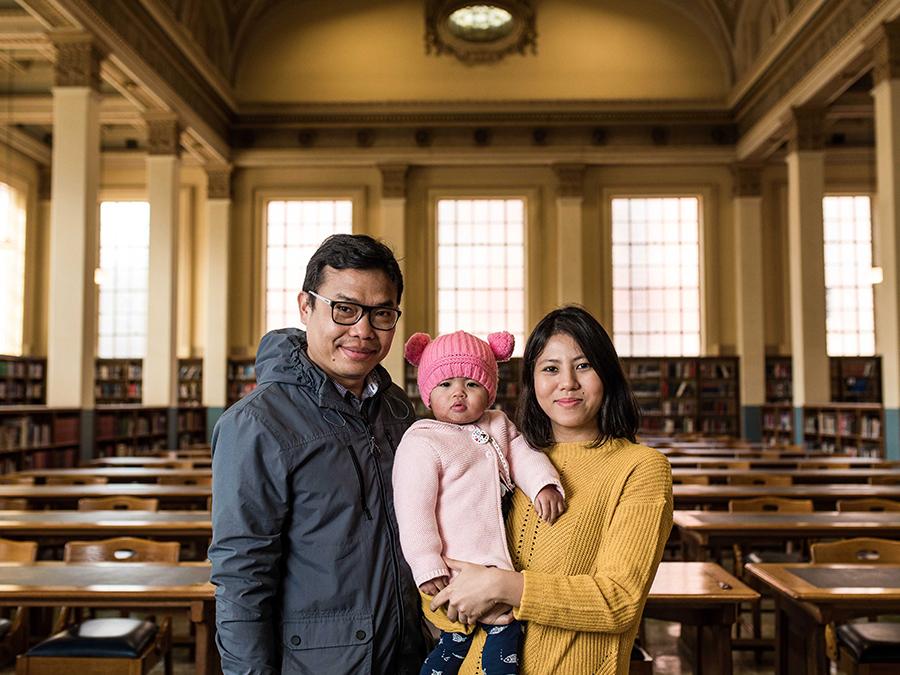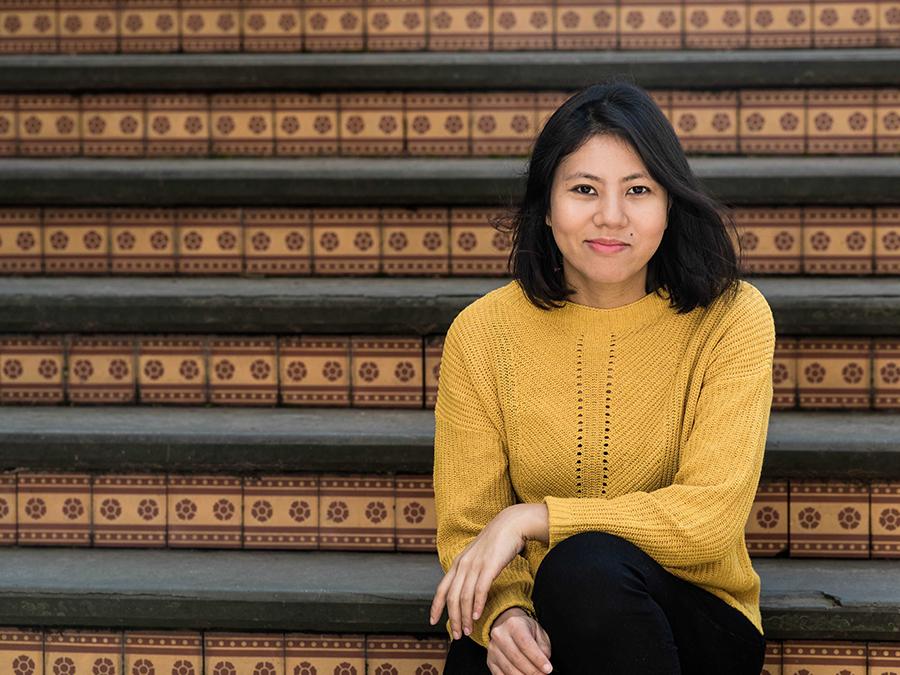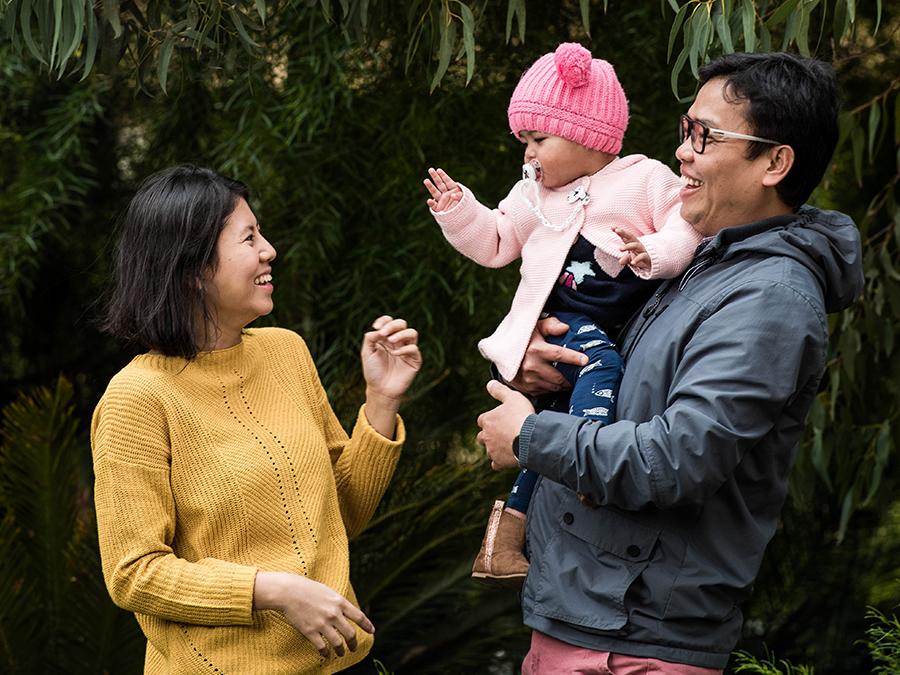Rupa creates history to change the future for migrants
Bangladesh’s first indigenous female to receive a PhD shares her amazing journey.

Dr Rupananda Roy is polite, unassuming and her eyes sparkle when she talks about her little girl.
And as the first indigenous woman from Bangladesh to receive a PhD, her academic achievement has created history. Rupa, as she prefers to be called, belongs to the Chakma indigenous group from Chittagong Hill Tracts (CHT) in South-Eastern Bangladesh.
Chakma is one of 54 indigenous communities which are marginalised, face extreme poverty and account for less than three per cent of Bangladesh’s population.
Women and children have also suffered greatly as instruments of war and victims of violence in the CHT region where Rupa grew up.

The area is politically sensitive and heavily militarised with residents facing human rights violations and population displacements since the 1970s.
But thanks to receiving an Australia Awards Scholarship to study a Bachelor of Development Studies at the University of Adelaide, Rupa was able to leave the troubled region at the age of 20.
“My parents were thrilled when I received this scholarship because they knew that in Australia, I would have opportunities in life and would be safe,” she said.
After completing her degree, Rupa was awarded a scholarship to pursue an honours degree in Development Studies and then an Adelaide Graduate Research Scholarship to complete her PhD on labour migration.

Currently a case manager for the Australian Education and Migration Services’ (AEMS) Humanitarian Settlement Program, Rupa is passionate about migrant issues in this country.
“I coordinate the delivery of settlement services to refugees, assess their needs and help them accordingly; for example, with their education and employment,” she said.
“My research during my PhD focused on macro-level migration issues and now, with my position in AMES, I have the opportunity to help migrants on a case by case basis.
“Many of our clients have spent years in refugee camps. Yet, when they come to Australia, they are enthusiastic about starting their life from scratch. Their energy is infectious.”
Rupa has mixed feelings about being the first indigenous female in Bangladesh to receive a PhD.

"It frustrates me that indigenous Bangladeshi men managed to get PhDs decades ago but it’s taken until 2017 for a woman to do the same." Rupa Roy
“Of course I am very proud of myself but it frustrates me that indigenous Bangladeshi men managed to get PhDs decades ago but it’s taken until 2017 for a woman to do the same,” she said.
Story by Tusha Bhatia
Photos by Meaghan Coles
Feature image: Dr Rupanda Roy, North Terrace campus.
Second image: Dr Rupa Roy, her husband Ripon and daughter Pernita in the Barr Smith Library.
Third image: Dr Rupa Roy on the stairs of the Barr Smith Library.
Fourth image: Dr Rupa Roy, her husband Ripon and daughter Pernita on the Maths Lawns.
